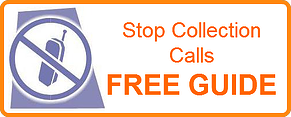Even though you are behind on your debts, your creditors do not necessarily have the right to garnish your wages! An Oregon wage garnishment can be stopped, but you must understand the process.
Once your account is delinquent 150-180 days , and you have received numerous calls and letters, your account will usually be turned over to a collection agency. If, after the collection agency has called you morning noon and night, they may decide to FILE A COMPLAINT.
After the collection agency files a complaint, you would receive a SUMMONS. If you have received a SUMMONS, you can read more by clicking here -->> "I Received a Summons".
Although it can be frightening to have someone knock on your door and serve you with a Summons, try to stay calm. Most of the time, a STIPULATED AGREEMENT can be negotiated. When a stipulated agreement is reached, the collections company will agree to accept payments and not apply for a garnishment.
A Stipulated Agreement can help if:
- You currently receive W-2 income from your employer.
- You usually keep a substantial amount of money in your bank account.
Why is a Stipulated Agreement better than a Wage Garnishment?
In a wage garnishment, an employer would be forced to deduct an average of 25% of your net take home pay each pay period! For most people, this would prevent them from paying their important bills like the mortgage or rent, food, and utilities.
By accepting a stipulated agreement, your monthly payment should be quite a bit less that the amount you would be garnished.
What types of income CAN'T be garnished?
- Pension
- Social Security
- Unemployment
- Disability
- Self-Employment Income (It is very difficult for a wage garnishment to be enforced as most self-employed people take a very small "income" and in most states, this would be exempt from wage garnishment.)
*If you have any income coming in other than those listed above, do not co-mingle the two income sources! If you deposit your Social Security check into the same account that you deposit your paychecks from a regular job, ALL of the funds would be subject to garnishment.
Can you Stop and Oregon Wage Garnishment and settle the debt for less once you have been served the summons?
YES! If you have access to funds that equal anywhere from 50% -70% of the balance, you may be able to negotiate a LUMP SUM SETTLEMENT.
However, once the judgment has been awarded, and the Writ of Garnishment has been applied, the collection agencies are not usually willing to take a low settlement.
KEY TAKEAWAY - THE WORST THING YOU CAN DO IS TO DO NOTHING!
If talking to your creditors and/or collection agencies frightens you, our professional and experienced Debt Negotiators can help! Give us a call or click on the link below for more free information.





 DIY credit repair is not as hard as you think!
DIY credit repair is not as hard as you think! If you want to improve your credit score, you need to know how to remove a judgmentfrom a credit report.
If you want to improve your credit score, you need to know how to remove a judgmentfrom a credit report.
 If you have a REVERSE MORTGAGE on your home, a creditor cannot garnish, levy or lien.
If you have a REVERSE MORTGAGE on your home, a creditor cannot garnish, levy or lien.


 There is a way to STOP WAGE GARNISHMENT, but it is easier to prevent than to stop!
There is a way to STOP WAGE GARNISHMENT, but it is easier to prevent than to stop!

 When you are searching the
When you are searching the  The doorbell rings and you are handed a summons regarding one of your past due credit accounts.
The doorbell rings and you are handed a summons regarding one of your past due credit accounts.

